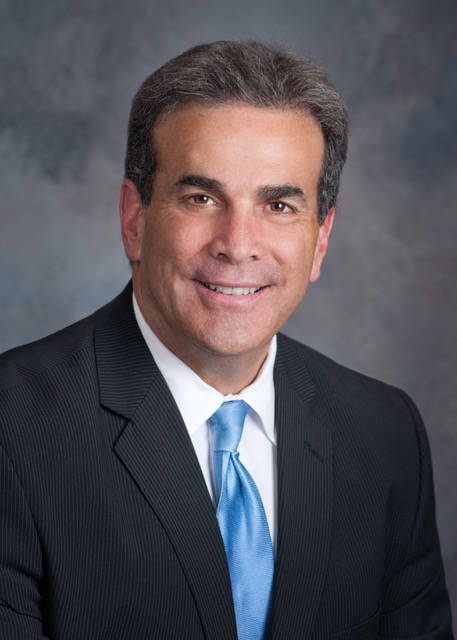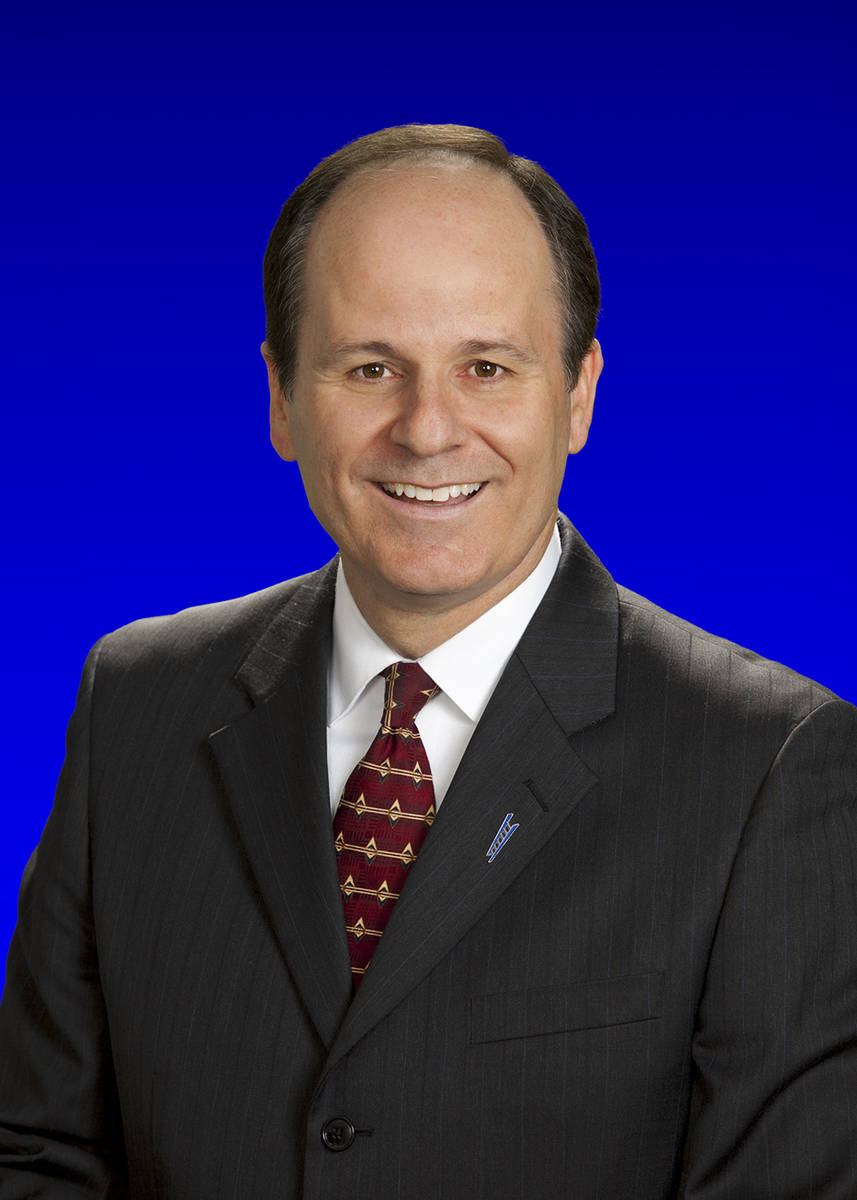Southern Nevada Banks have quickly moved to defer loan payments and provide additional lines of credit to business borrowers, who are trying to weather the COVID-19 outbreak that has shuttered or curtailed their operations.
All banks have reached out to their clients to deal when businesses shut down. Here’s some of what’s happening:
BANK OF NEVADA
John Guedry, CEO of Bank of Nevada, said they’ve already done some 90-day extensions for clients that may include interest or principal or both. He said they’ve been reaching out to clients who don’t have the cash to weather the economic shutdown over the next three-plus months before they can stabilize. Those businesses include restaurants, retailers, professional services and similar companies whose massive revenues decline because of Gov. Steve Sisolak’s mandated shutdown of non-essential businesses.
“We want to give them some breathing room, and we will take a (look) at it in 60 days and see what happens in the next two to four weeks with the potential of businesses getting back to business as usual, hopefully, and how long it will take to stabilize,” Guedry said. “It is short term, trying to get people over the hump. As the market starts to clear and we have a better idea of what’s going on and how much longer this will last and its impact, we can figure out what our next step is.”
Some tenants are being helped out by landlords by having rents pushed out, and Guedry said he expects shopping centers to be among those who seek loan relief. Many investment property owners, however, have a reserve capital to make their payments.
“I don’t think we will have as many as we might anticipate, but there will be some,” Guedry said.
Some businesses used their lines of credit as they were growing their businesses and then got hit with a drop in sales and can’t move their product or collect on receivables, Guedry said. In some cases, he said they’re increasing their lines of credit and working with clients for Small Business Administration loans. In addition, federal government stimulus being debated by Congress in the form of grants, loans or tax deferrals would help.
“I know it’s popular for people to say when the federal government has stimulus plans for businesses to say the government is more worried about them and not the workers, but in reality without the businesses you have no workers,” Guedry said. “They are prudently trying to figure out how we get funds to the appropriate industries and companies in the right way so we can keep people employed.”
Guedry admits he’s concerned because it’s hard for Las Vegas, which just completed a week of its shutdown of the Strip and other businesses, can be shut down much more than a month. He said the question remains whether federal stimulus spending will be enough to overcome what’s happening from the outbreak.
“I don’t know,” Guedry said. “I think the bigger damage is how long it will take to recover from the idea that if I travel I put myself at risk. The answer to that is how quickly we can get solutions to the coronavirus and start seeing cases dropping up significantly. Otherwise, this can drag out for a while and then we’re back open and people back to work, and but if we don’t have people traveling and coming back to conventions and vacations this drags on for a long time.”
BANK OF GEORGE
Bank of George President and CEO T. Ryan Sullivan said it has launched its Business Relief Plan, which grants all of its borrowers an optional 90-day debt payment deferral for interest and principal to provide them additional cash flow during a business closure.
This optional payment deferral will be an addendum to each loan agreement and will provide for the
reamortization on each affected loan, Sullivan said. The Bank of George is in a strong financial position to manage its cash flow requirements during this 90-day program and beyond, he said.
“Our Business Relief Plan is a program, which we believe will substantially assist our clients to transit this
extraordinary event,” Sullivan said. “Imagine what the effect would be if large banks stepped up for their clients — the liquidity infused into the small business sector would be overwhelming.”
Sullivan said they’ve received “a favorable response” from borrowers and got a head start on it on March 17, which he said may have been one of the fastest in the nation.
“We made the decision then we would offer it to our entire loan portfolio and all our borrowers,” Sullivan said. “The percentage is going to be very high. The response from our borrowers has been significant and there’s been a lot of gratitude expressed.”
Bank of George has about 400 business loans and a $240 million portfolio. Their clients include smaller hospitality loans of independent hotels and motels, restaurants, bars, real estate and development companies, engineers, doctors, logistics companies tied to conventions and small retailers. The largest loans are up to $5 million and the average loan is about $500,000.
Last weekend, Sullivan said the FDIC released a letter similar to what is done in disasters that allows banks one-time modification to loans would not be treated by regulators as troubled debt restructuring.
“We’re in a strong position to manage this,” said Sullivan, who said it was part of their role as a community bank. “The effect on us is going to be limited.”
Sullivan said three months of deferral will be enough for many companies but in some cases there will be lingering effects that will have to be dealt with as they develop.
Sullivan said these are uncertain times and the debt relief offered to clients will help. This is an event that will be dealt with “for some time. Having that three months of payment deferral is welcome because of that uncertainty our borrowers have over what happens after this first stage.”
The deferrals will “give them some breathing room to keep the business operational and keep employees on” and start to prepare for what their plans are in 90 days, he said.
“We’re going to respond from this, and we’re going to recover,” Sullivan said. “The time frame and uncertainty associated with that is causing people quite a bit of anxiety and I understand that. I think we’re going to respond and come out the other side and do very well.”
Sullivan said they’re encouraging clients to apply for the Small Business Administration Economic Injury Disaster Loans with fixed-rate, long-term financing and allows up to 12 months of fixed expenses up to $2 million. The rate is 3.75 percent, he said.
CITY NATIONAL BANK
Paul Stowell, Nevada regional executive for City National Bank, said it will roll out a plan this week with the details to help business customers along with consumers, including mortgages, credit cards and home equity.
“We have put together a COVID-19 consumer debt relief plan, and we’re going to be rolling that out shortly,” Stowell said. “We’re addressing credit cards and consumer loans. Everything will be looked at on a case-by-case basis and we will work with our clients as we did during the 2008/2009 financial crisis. We’re finalizing the details and will have more in the next day or two.”
NEVADA STATE BANK
Terry Shirey, president and CEO of Nevada State Bank said they’re reaching out to our clients and to see what they need, and that includes loan payment deferrals.
“We’re all in this together in this community, and I don’t think there is any doubt in anybody’s mind that we are in for a tough few months here in Nevada with what has happened with our hospitality industry and governor’s order last week. Businesses are going to need some relief and Nevada State Bank is very engaged in that right now.”
Shirey said they’re doing it on a client-by-client basis to develop a solution that works individually for them. All options are on the table and deferred loan payments are a big part of that, and “we’re in the process of approving those now.”
Nevada State Bank has about 30,000 business clients and about 10 percent have loans, Shirey said. It varies from a $10,000 line of credit to loans in excess of $50 million. The bank serves a range of clients from hospitality to manufacturing, distribution, restaurants and other industries in the state.
“We have all prepared for the inevitable recession, but this isn’t what we had in mind with a complete shut down,” Shirey said. “My hope is that if the businesses are able to open after this 30-day period mandated by the governor, even in that case, we have to be prepared for it to take some time to get back to where we were prior to this.
That’s how we are looking at it and thinking about our clients long-term health and understanding this is going to take a little while to work through. There are going to be some challenges beyond that 30 days. We also need to be prepared that this can go beyond 30 days.”
Shirey said he’s heard encouraging stories of owners of retail centers working with tenants on rent deferrals or reductions. Those rent payments get pushed back and give people some breathing room, he added.
Shirey said it’s difficult to predict how this plays out and how many business closures will result from this. The federal government stimulus program will be key to many companies getting through this, he said. One way is a proposal for an SBA loan that would be forgiven if it’s used to make payroll.
“It’s hard to imagine there won’t be some (closures), which is really unfortunate,” Shirey said. “We’re going to do what we can to prevent that in our client base. There’s hope with the federal stimulus and the SBA loan program that’s out there for loans up to $2 million to help small businesses get through this cycle. We need more of that coming out of Washington and we need to get moving on this because the window is closing rapidly and people are being laid off. We need that to prevent more business closures. When you shut your doors and operate on tight margins anyway, it’s pretty tough to survive for a long period of time without cash flow coming in the door. That’s what everybody is facing right now.”










